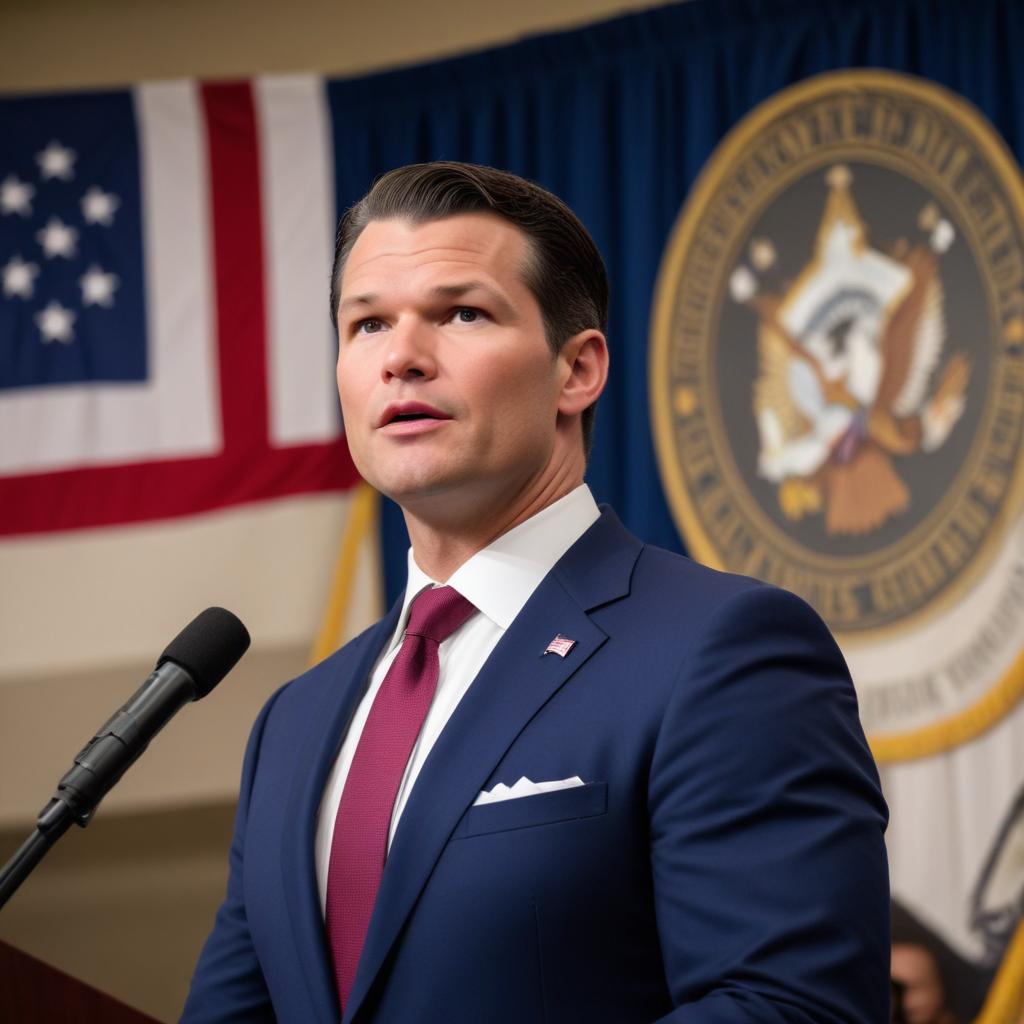Defense Secretary Pete Hegseth, under President Trump, outlined a 10-point plan to overhaul the U.S. military's policy, philosophy, and culture. He criticized promotions based on race and gender quotas, vowed to eliminate "woke" initiatives like DEI and identity months, and called for a return to "highest male standards" for combat roles and stricter physical fitness requirements for all service members, emphasizing a "warrior ethos" focused on combat readiness.
Defense Secretary Pete Hegseth, speaking in Quantico, Virginia, detailed a sweeping 10-point plan to transform the U.S. military under President Donald Trump. Hegseth asserted that the force had become "less capable and less lethal" due to promotions based on race, gender quotas, and "historic so-called firsts." He declared an end to "identity months, DEI offices, dudes in dresses," "climate change worship," and "gender delusions," refocusing the military on "the warrior ethos" and "peace through strength." A key policy change involves physical standards, particularly for combat arms. Hegseth stated that standards, especially those altered since 2015 to accommodate women, must revert to their "original standard" or the "highest male standard." While he clarified this isn't intended to block women, he acknowledged it could result in fewer women qualifying for some combat jobs. This reverses a 2015 decision by then-Defense Secretary Ash Carter to open all military jobs to women, a move that followed extensive study and recognition of women's combat service. Hegseth also questioned why military standards changed since 1990, suggesting a "softening" or "weakening." Hegseth also criticized the physical fitness of service members, stating it's "tiring to look out at combat formations or really any formation and see fat troops," including generals and admirals. This addresses a significant issue, as being overweight is a major disqualifier for potential recruits. This stance contrasts with previous Navy policies, such as a 2016 decision to loosen body fat restrictions to retain talented sailors. Finally, Hegseth emphasized that military members are there to "kill people and break things for a living," asserting they are "not politically correct and don’t necessarily belong always in polite society." He linked this to upcoming changes in how toxic leadership complaints are handled, infractions recorded, and promotions processed, following his recent firings of top military leaders. Critics, however, argue that the modern military is already highly effective and that diversity is crucial for diplomacy and problem-solving, not just combat.



